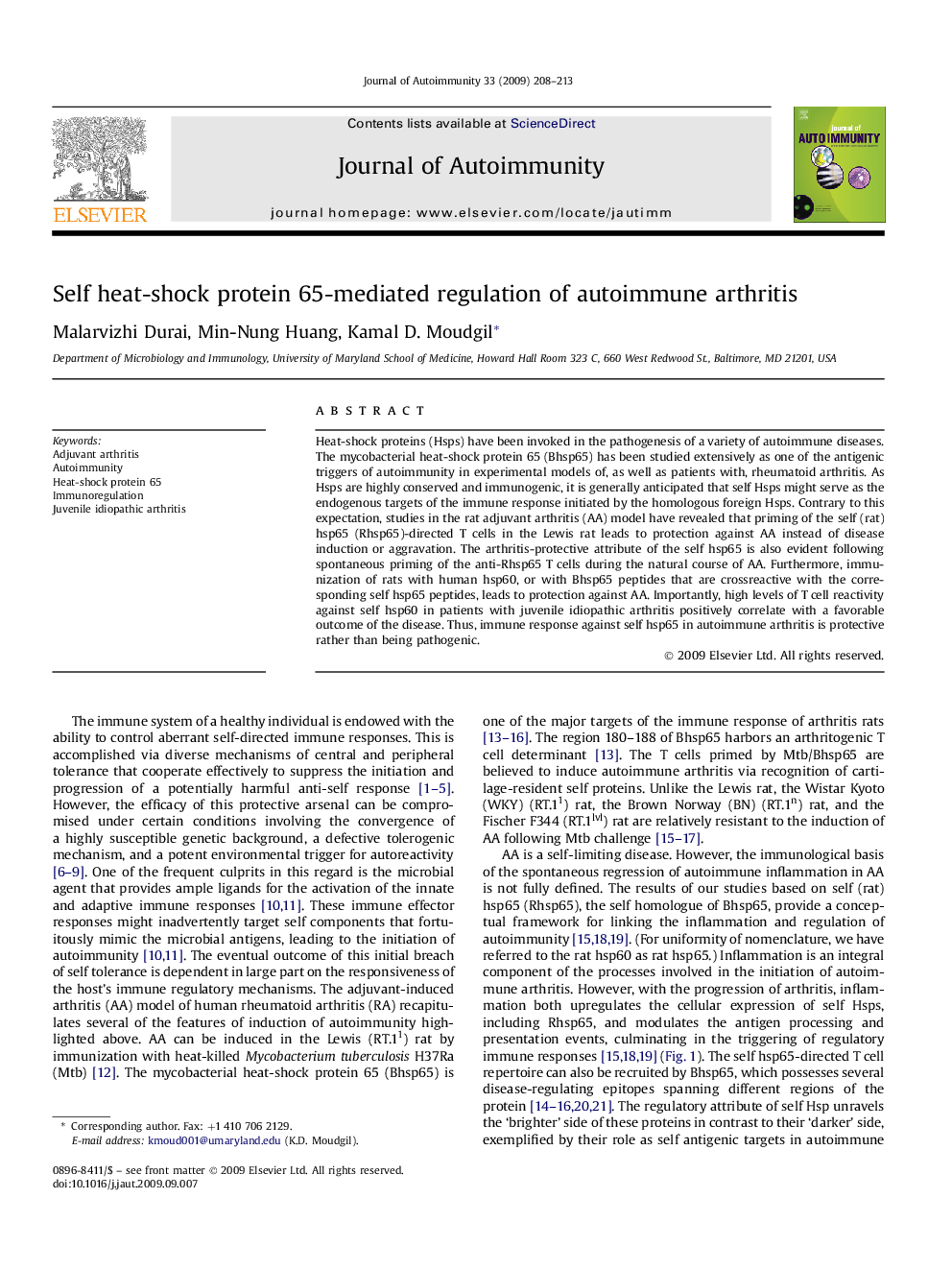| Article ID | Journal | Published Year | Pages | File Type |
|---|---|---|---|---|
| 3368205 | Journal of Autoimmunity | 2009 | 6 Pages |
Heat-shock proteins (Hsps) have been invoked in the pathogenesis of a variety of autoimmune diseases. The mycobacterial heat-shock protein 65 (Bhsp65) has been studied extensively as one of the antigenic triggers of autoimmunity in experimental models of, as well as patients with, rheumatoid arthritis. As Hsps are highly conserved and immunogenic, it is generally anticipated that self Hsps might serve as the endogenous targets of the immune response initiated by the homologous foreign Hsps. Contrary to this expectation, studies in the rat adjuvant arthritis (AA) model have revealed that priming of the self (rat) hsp65 (Rhsp65)-directed T cells in the Lewis rat leads to protection against AA instead of disease induction or aggravation. The arthritis-protective attribute of the self hsp65 is also evident following spontaneous priming of the anti-Rhsp65 T cells during the natural course of AA. Furthermore, immunization of rats with human hsp60, or with Bhsp65 peptides that are crossreactive with the corresponding self hsp65 peptides, leads to protection against AA. Importantly, high levels of T cell reactivity against self hsp60 in patients with juvenile idiopathic arthritis positively correlate with a favorable outcome of the disease. Thus, immune response against self hsp65 in autoimmune arthritis is protective rather than being pathogenic.
